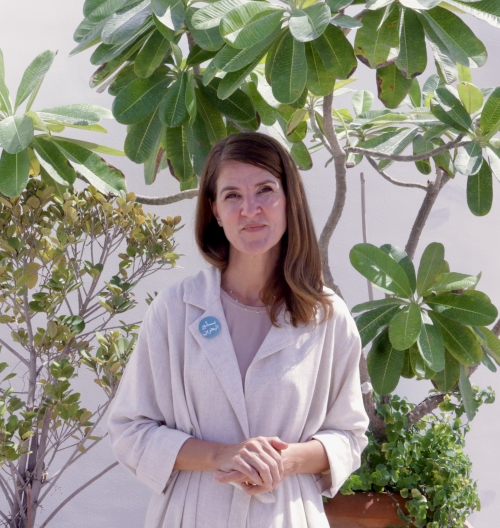UN-Habitat partners with Bahrain on ambitious nationwide tree-planting campaign
Marking the Launch of a National Initiative
As part of a nationwide tree-planting campaign, the Capital Municipal Council hosted an event yesterday at the historic Bahrain Fort, where seedlings were distributed to attendees. This initiative aims to encourage citizens to actively engage in greening their communities, promoting sustainability, and supporting the agricultural sector. In collaboration with the Ministry of Municipalities Affairs and Agriculture and the United Nations Development Programme (UNDP), the campaign seeks to enhance ecological resilience and bolster agriculture throughout the Kingdom. To gain insights into this vital effort, The Daily Tribune spoke exclusively with Dr. Fernanda Lonardoni, Head of the UN-Habitat Country Programme.
Q: Can you tell us more about your role as a United Nations representative in Bahrain?
A: UN-Habitat, the UN agency responsible for sustainable cities and communities, has been active in Bahrain for nearly three years. Our primary goal is to support the government’s efforts to improve the quality of life in urban areas. We have several ongoing projects, including support for the national afforestation plan.
Q: How does this tree-planting initiative align with the broader UN sustainable development agenda?
A:The tree-planting initiative aligns perfectly with the UN Sustainable Development Goals (SDGs). Bahrain aims to become a more sustainable nation and improve people's lives, directly tying into the SDGs. Particularly, SDG 11, which focuses on making cities inclusive, safe, resilient, and sustainable, is central to this initiative. Additionally, climate action is linked to SDG 13. We designed this campaign as a call to action for the people of Bahrain, encouraging them to engage in tree planting to create greener and healthier communities.
Q: What types of trees are being planted, and is there a focus on indigenous species?
A: The national afforestation plan includes 19 selected species, encompassing both indigenous and non-indigenous varieties that can thrive in Bahrain’s climate. We have observed a preference among the public for fruit trees, so we’ve included those alongside shade-providing trees. For instance, we have mulberry (locally known as Toot), Sidr, Poinciana, and neem trees included in the campaign.
Q: What partnerships has the United Nations established with the government, NGOs, and the private sector for this initiative in Bahrain?
A: We are collaborating with all sectors. This campaign is for the people, and its planning involved extensive consultations with municipal councils, which play a crucial role in supporting us on the ground. We’re also partnering with NGOs like the National Initiative for Agricultural Development (NIAD) and Budaiya Hub to raise awareness. Additionally, the private sector has shown increasing interest in supporting sustainability efforts in Bahrain over the past two years.
Q: How can individuals and organizations get involved in supporting this initiative?
A: Individuals can visit the official Buthoor Al Bahrain website. There, they can request a tree and indicate on a map where they would like to see more greenery. We’re mapping these requests and will notify participants when trees are distributed in their area. It’s essential first to learn how to care for a tree, then consider where additional trees are needed — whether it’s near a bus stop without shade or a park that lacks greenery. We encourage everyone to submit their ideas, and we will work to enhance these spaces.
Q: Can you provide insights into the total number of trees planted and the broader ecological and social impacts?
A: The national afforestation plan aims to double the number of trees by 2035, increasing from 1.8 million to 3.6 million trees. We are planting 130,000 trees annually, and our campaign goal is to plant 50,000 trees in the first three months.
Q: What is the projected timeline for this initiative, including monitoring and evaluation?
A: We expect this campaign to run for the next 12 years as part of public engagement with the National Afforestation Plan. The first phase will involve distributing seedlings over three months, with targets of 3,000 in October, 5,000 in November, and 7,000 in December. We will track all tree distributions and the species planted to monitor the afforestation plan’s progress.
Q: Who is funding this initiative?
A: The project is a collaboration with the Ministry of Municipalities Affairs and Agriculture, which is helping design and implement the campaign. We are also relying heavily on support from our partners.
Q: Any final thoughts?
A: Seed by seed, we are moving towards sustainable communities. We invite everyone to plant a tree and help care for it.
This initiative not only highlights the importance of environmental sustainability but also fosters community involvement in creating a greener Bahrain.
Related Posts

